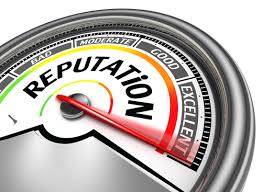FCPA Enforcement Actions and Reputational Damage
 If you ask members of a corporate board or senior executives about the cost of an FCPA enforcement action, they will candidly acknowledge all of the costs – fines, penalties, and professional costs (e.g. legal, accounting, forensic). These are significant costs and nothing to sneeze or laugh at (however the expression goes).
If you ask members of a corporate board or senior executives about the cost of an FCPA enforcement action, they will candidly acknowledge all of the costs – fines, penalties, and professional costs (e.g. legal, accounting, forensic). These are significant costs and nothing to sneeze or laugh at (however the expression goes).
In a moment of candor the board members and C-Suite executives will confess that the real pain to a company is reputational damage. While they cannot give you an actual figure on the amount of harm, they will describe in detail the impact of an FCPA enforcement action on the company’s relationship with its customers, vendors/suppliers, shareholders and the community.
No one can question the impact that reputational damage can have. Everyone knows a company’s reputation is one of its most important assets and they know when it gets hurt. The signs are fairly obvious but the amount of damage is hard to estimate.
A recent article in the Journal of Business Ethics by Sampath, V.S., Gardberg, N.A. & Rahman, N., Corporate Reputation’s Invisible Hand: Bribery, Rational Choice, and Market Penalties (Here) examined how the market reacted to corporate bribery allegations and investigations, and measured loss in firm value for companies facing bribery investigations.
The authors looked at enforcement actions and stock market values for companies during the period of 1978 to 2010 and concluded that the stock market penalties to firms involved in corporate bribery totaled over $60 billion. Interestingly, the regression analysis conducted by the authors demonstrated that companies that engaged in bribery in less corrupt countries and with the involvement of senior executives experienced higher reputational penalties than did other companies.
The authors segregated share value losses for regulatory penalties, class action settlements, and loss to reputation, and determined that approximately 82 cents of every dollar of share value loss was attributed to reputational damage. Another way of looking at the analysis is that failure to consider the reputational damage of a bribery scandal significantly underestimates the cost to a company by at least 4 times. This finding confirms what we already know in some respects — companies need to consider reputational damage as a significant factor along with a fine and penalties (or compliance monitor costs) when weighing the cost of a bribery enforcement action.
The authors’ data set was limited to 1978 to 2010. In the last ten years, the average penalty imposed has increased significantly (see Stanford Law FCPA Data Site Here), and the reputational damage from these actions may have increased. While it may be difficult to quantify reputational damage by changes in the stock value of a company, it certainly is the most important indicator of how much value the market places on a company’s reputation.
 The University of Pennsylvania’s Wharton School of Business (my alma mater, in full disclosure) has conducted research on the so-called “trust” factor that stakeholders attribute to a company. Researchers have estimated that the trust factor may range from 25 to 30 percent of a company’s share price; others suggest that the trust factor as measured by company goodwill may be greater than 25 to 30 percent. (See Here for summary of work by Professor Nichols).
The University of Pennsylvania’s Wharton School of Business (my alma mater, in full disclosure) has conducted research on the so-called “trust” factor that stakeholders attribute to a company. Researchers have estimated that the trust factor may range from 25 to 30 percent of a company’s share price; others suggest that the trust factor as measured by company goodwill may be greater than 25 to 30 percent. (See Here for summary of work by Professor Nichols).
Whatever the measure, a company’s reputation is a significant asset. When a company suffers a bribery scandal, there is no doubt that it suffers some reputational damage. That damage is a significant cost to a company from an investigation and enforcement action.
















2 Responses
[…] Read Full Article: FCPA Enforcement Actions and Reputational Damage – Corruption, Crime & Compliance […]
[…] Read Full Article: FCPA Enforcement Actions and Reputational Damage – Corruption, Crime & Compliance […]